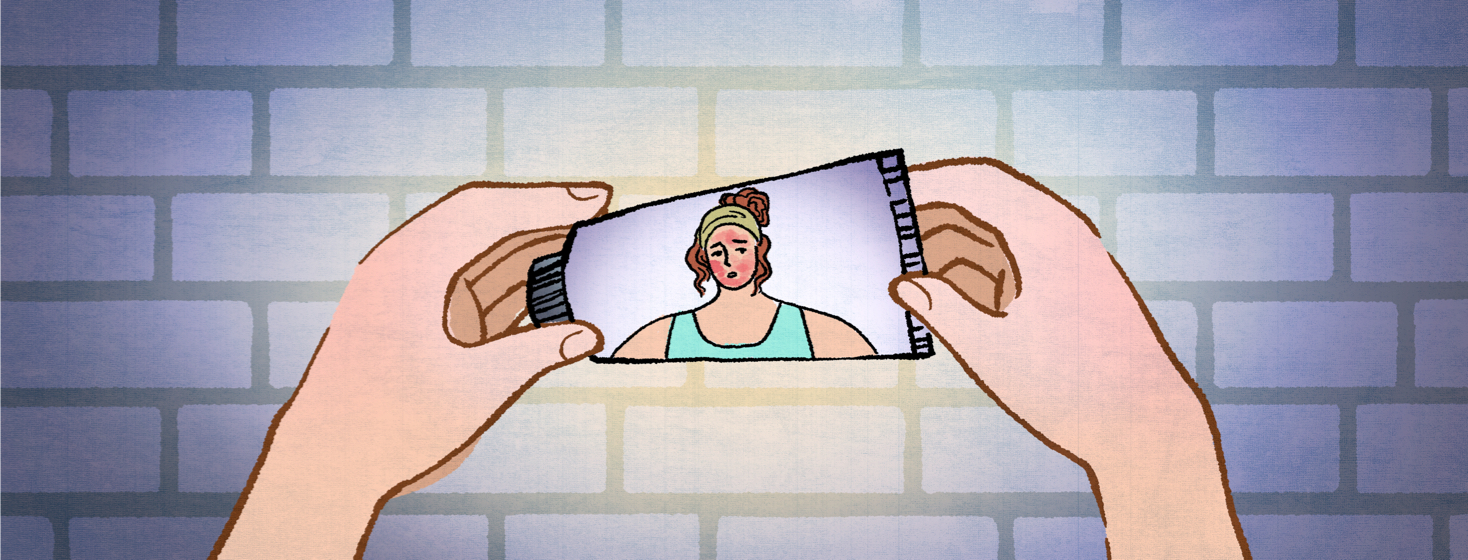That Dreaded Label, Steroid Phobia
As an atopic individual, I am sure the term ‘steroid phobic’ has risen from the seedy depths of a doctor’s office, especially when trying to quell the age-old question, “Are topical steroids the best treatment for me?”
What is phobia?
First off, the definition of ‘phobia’ is “having or involving an extreme or irrational fear of or aversion to something.”
Irrational… that word, alone, is the perfect example of gaslighting in a doctor’s office. Rather than conversing with a patient and listening to their concerns, the ‘steroid phobic’ branding helps many doctors wiggle their way out of uncomfortable situations. The patient, not the doctor, is left to feel like they are the ones who did something wrong or were mistaken.
Dermatitis is lagging behind
Ever since attending an illustrious and eye-opening American Academy of Dermatology conference in 2016, my mind has fully grasped how far behind the world of dermatology has fallen, at least compared to other areas, like cardiology. And even within our own dermis bubble, atopic dermatitis and eczema are particularly low on the totem pole of discoveries and new treatments. Within the past few years, we are only now witnessing the unfolding of new medications and trials.
A band-aid fix
Due to this, we are always left with only a minuscule amount of feasible options for our skin. Sure, you may get a doctor who recommends light therapy or a newer drug, like Eucrisa, but the treatment that always makes it onto a doctor’s prescription pad is none other than topical steroids. It is the front line, easiest, most fast-acting medication to prescribe to a patient. You want quick results? Boom, happy patient.
But at what cost to some?
Once the condition topical steroid withdrawal started gaining attention – a legitimate condition where adverse effects from using topical steroids (and other forms of steroids) far outweigh the pros of their use – many doctors played defense, concocting the perfect plan for deflection: steroid phobia.
If the patient has qualms or does not feel steroids may be their cup of tea, doctors immediately resort to using this term. Even if the patient has used steroids and is experiencing what they feel are negative effects, they still toss out this term. And, when horrible side effects are acknowledged, most doctors attest it is due to steroid phobia, which has caused the patient to undermedicate. How convenient.
Instead of recognizing a potential health threat, it is suffocated and dismembered.
Food for thought
Would you denounce someone’s outcry that dogs should be walked on leashes after they were just ferociously mauled by one? How about discrediting a parent who pleads for a slower speed limit after their child was struck by hasty oncoming traffic in front of their school?
Didn’t think so.
Then why are there such shaming and condescending use of the words ‘steroid phobia’ in our medical community? They are uttered in patient rooms and smeared in journals as proof that doctors always know what is best and that patients need to take a back seat regarding any information that their doctor doesn’t deem useful or, worse, valid. Haven’t we learned from history?
A little lesson in history
Take cigarettes, for example. When they first hit the market in the United States, they were praised by the health community. Can you imagine? Doctors, actors, even ol’ Saint Nick, were endorsing these sticks of death. It was the sweetest thing since the invention of the wheel. Scratchy throat? Light up a Lucky Strike. Need to relax after a hard day? Puff on a Pall Mall. Forget a party gift? Swing by with a stack of Winston. Cigarettes were the solution to all of your problems, much like topical steroids are used for almost every skin ailment under the sun.
Now, most labels on cigarette packs come with forewarnings about the product. ‘SMOKING CAUSES THROAT AND MOUTH CANCER.’ Some even come with the added viewing pleasure of pictures – decaying lungs, gum disease, or, ghastly, a corpse!
What about topical steroid withdrawal?
What if the FDA mandated that a picture of a topical steroid withdrawal patient be slapped on a box or tube of Triamcinolone? Can you fathom the true reach of accountability being taken by these companies addressing the dangers in using their product?
Similar to cigarettes, those pictures or warnings won’t always sway people away. They are just valuable cautions for the ‘what ifs’ surrounding the drug. Instead of labeling a patient steroid phobic, perhaps it is time to unmask the true fear – that doctors do not know what to do with their patients if topical steroids are no longer their effortlessly prescribed, go-to medication.
Here's to the future
One can only hope that the day of reckoning is near and that we will no longer be met with hostility or defense but with curiosity and care. No one should ever feel forced to use a product, let alone silenced by an unfair label. Through personal experience and research, when a drug has shown to be a hazard to some patients, especially when used long-term, the sour stamp of ‘steroid phobic’ has no place in articles, journals, or a doctor’s mouth. Period.

Join the conversation